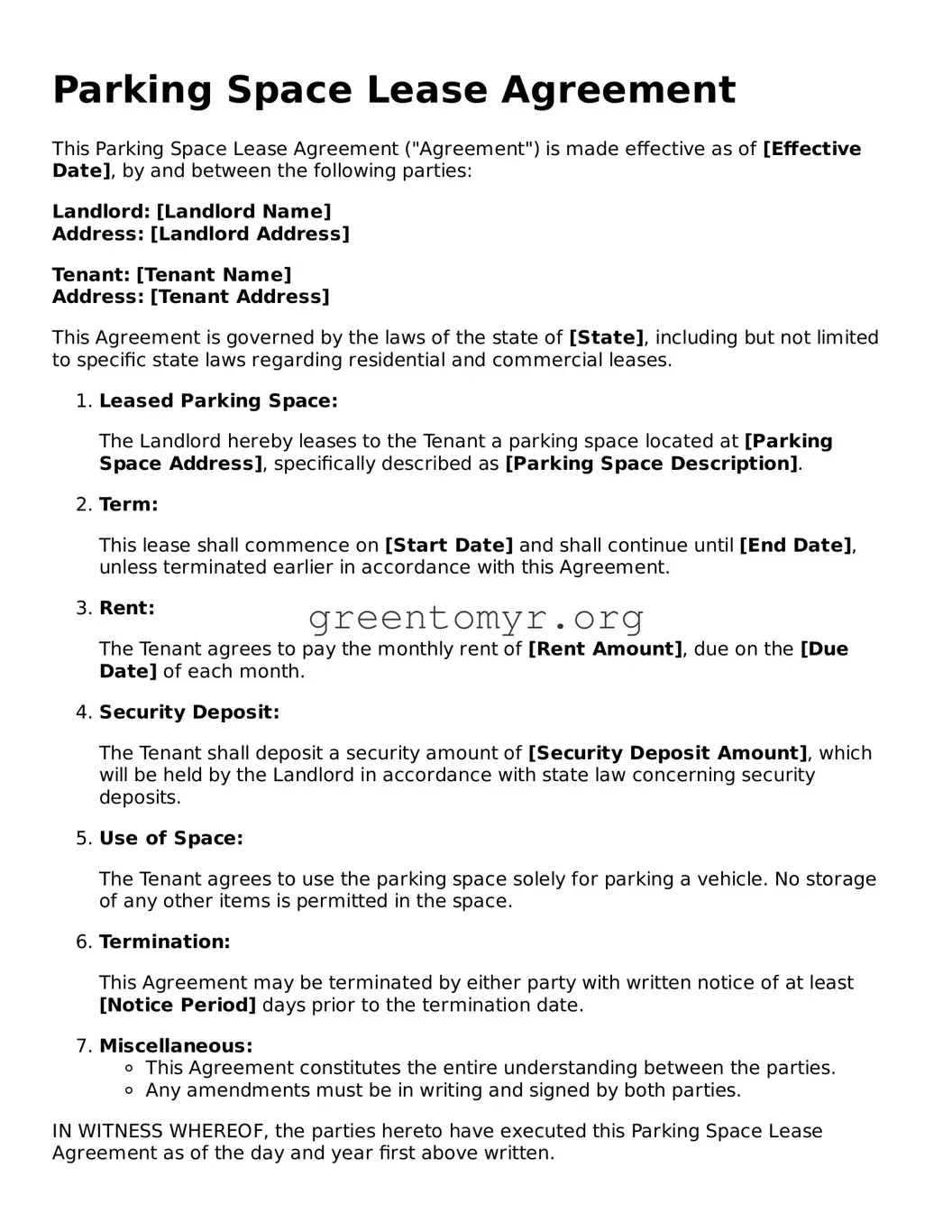Filling out a Parking Space Lease Agreement form is often a straightforward process, yet many people tend to overlook crucial details that can lead to complications. One common mistake is **failing to double-check personal information**. This includes names, addresses, and contact numbers. Inaccurate information can create confusion for both parties involved, resulting in potential communication issues.
Another frequent error is **not specifying the rental period**. It’s essential to include the start and end dates of the lease. Without this information, disputes may arise regarding the duration of the agreement or expectations for renewal.
Additionally, some individuals forget to clearly state the **monthly rental fee**. It’s not just about writing down a number; detailing the payment method can help avoid misunderstandings. Ensuring that both parties agree on payment terms fosters transparency and reinforces trust.
A major pitfall is **neglecting to describe the parking space itself**. Simply stating "parking space" isn’t enough. Location specifics, such as whether it’s a covered or uncovered space, should be included. This clarity helps prevent disputes later on regarding the amenities or conditions of the space.
In some cases, individuals overlook the importance of including **terms concerning maintenance and repairs**. Outlining the responsibilities of both the landlord and tenant regarding upkeep provides peace of mind. It clarifies who is accountable for maintaining the parking space in good condition.
Some people also make the mistake of **ignoring local regulations or requirements**. Certain areas may have specific rules about parking agreements that need to be followed. Instead of assuming compliance, always check local laws to avoid future headaches.
It's essential to note that not having a **signature from both parties** is a mistake that can invalidate the agreement. A signed document is more than just a formality; it serves as a legal acknowledgment of the terms agreed upon. Without both parties’ signatures, the lease may not hold up in the event of a dispute.
Lastly, **failing to keep a copy** of the signed agreement is a significant oversight. After the form is complete, both parties should retain a copy for their records. This ensures that everyone has access to the terms initially agreed upon, helping to avert large misunderstandings.
